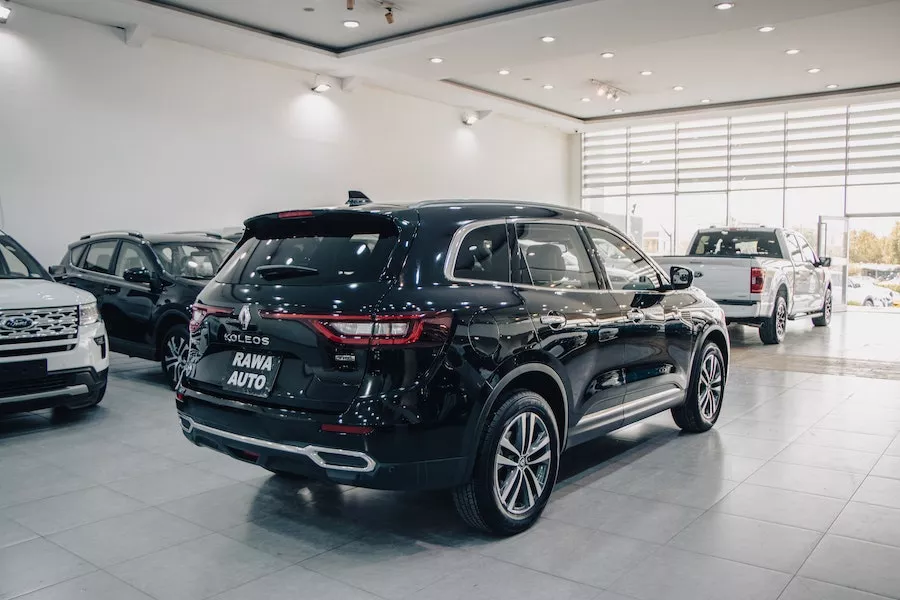The Pros And Cons Of Leasing Vs. Buying A Car On A Budget
Share
When it comes to purchasing a car on a budget, there are two main options: leasing or buying. Both options have their advantages and disadvantages, and it’s essential to consider them carefully before making a decision. In this blog post, we’ll explore the pros and cons of leasing vs. buying a car on a budget, with a particular focus on the Vauxhall Crossland.
Leasing A Vauxhall Crossland
Leasing a car essentially means renting it for a fixed period, usually two to four years. You’ll pay a monthly fee to use the car during that time, but you won’t own it. When the lease ends, you’ll return the car to the dealer.
Pros:
Lower monthly payments: Because you’re only paying for the use of the car, your monthly payments will typically be lower than if you were buying it outright. This can be an advantage if you’re on a tight budget and need to keep your monthly expenses low.
Newer cars: Leasing a car typically means you’ll be driving a newer car with the latest features and technology. This can be a pro if you’re someone who likes to have the latest and greatest gadgets.
No worries about depreciation: When you lease a car, you don’t have to worry about its resale value because you don’t own it. This can be a pro if you’re someone who wants to avoid the risk of losing money when it’s time to sell the car.
Cons:
Mileage restrictions: When you lease a car, there are usually mileage restrictions in place. If you exceed these limits, you’ll have to pay extra fees. This can be a con if you’re someone who likes to take road trips or has a long commute.
No ownership: When you lease a car, you don’t own it. This means you can’t make modifications to it or sell it if you need to. This can be a con if you’re someone who likes to customize their car or wants the option to sell it later on.
Extra fees: When you lease a car, there may be extra fees involved, such as an acquisition fee or a disposition fee. These fees can add up over time, making leasing more expensive than it initially seems.
Buying A Vauxhall Crossland
Buying a car means you own it outright, and you’ll make payments until you’ve paid off the entire cost of the car. Once you’ve paid off the car, you’ll own it outright.
Pros:
Ownership: When you buy a car, you own it. This means you can make modifications to it, sell it when you’re ready, or keep it for as long as you like. This can be a pro if you’re someone who likes to customize their car or wants the option to sell it later on.
No mileage restrictions: When you buy a car, there are no mileage restrictions. You can drive it as much or as little as you like without worrying about extra fees. This can be a pro if you have a long commute or like to take road trips.
No extra fees: When you buy a car, there are no extra fees involved, such as an acquisition fee or a disposition fee. This means the cost of the car is the only thing you’ll have to worry about.
Cons:
Higher monthly payments: When you buy a car, your monthly payments will typically be higher than if you were leasing it. This can be a con if you’re on a tight budget and need to keep your monthly expenses low.
Depreciation: When you buy a car, you’re responsible for its resale value. Cars typically lose value over time, so if you plan on selling it later on, you may not get as much money for it as you originally paid for it. This can be a con if you’re someone who wants to avoid the risk of losing money when it’s time to sell the car.
Repairs and maintenance: When you own a car, you’re responsible for all the repairs and maintenance costs. This can be a con if you’re not prepared for unexpected expenses that may arise.
Comparing The Vauxhall Crossland For Sale: Lease Vs. Buy
Now that we’ve explored the pros and cons of leasing vs. buying a car on a budget let’s apply these concepts to the Vauxhall Crossland for sale.
Leasing a Vauxhall Crossland: If you’re interested in leasing a Vauxhall Crossland, you’ll likely benefit from lower monthly payments and the opportunity to drive a newer car with the latest features. However, if you have a long commute or like to take road trips, you may need to be mindful of the mileage restrictions that come with leasing. Additionally, if you’re someone who wants to customize their car or has the option to sell it later on, leasing may not be the best option.
Buying a Vauxhall Crossland: If you’re interested in buying a Vauxhall Crossland, you’ll have the advantage of ownership, meaning you can customize it to your liking, sell it when you’re ready, or keep it for as long as you like. However, buying a car typically means higher monthly payments, and you’ll be responsible for all the repairs and maintenance costs. If you’re someone who is not prepared for unexpected expenses that may arise, buying may not be the best option.
Other Factors To Consider
When deciding whether to lease or buy a Vauxhall Crossland, there are a few other factors you should consider, such as:
How long do you plan on keeping the car? If you only need a car for a few years, leasing may be the best option. However, if you plan on keeping the car for a long time, buying may be a better choice.
What is your credit score? Your credit score will play a significant role in determining your monthly payments and whether you’re eligible to lease or buy a car. If you have a low credit score, leasing may be more challenging, and you may end up paying higher interest rates.
How much do you drive? If you have a long commute or like to take road trips, buying may be a better choice as you won’t have to worry about mileage restrictions. However, if you don’t drive much, leasing may be a more cost-effective option.
Conclusion
In conclusion, the decision to lease or buy a Vauxhall Crossland on a budget comes down to your personal preferences and financial situation. Leasing a car can be a good option if you’re on a tight budget and want to drive a newer car with the latest features. However, if you prefer ownership and want to avoid the risk of losing money when it’s time to sell the car, buying may be the better choice. Before making a decision, consider factors such as how long you plan on keeping the car, your credit score, and how much you drive. Ultimately, the decision should be based on what works best for you and your unique situation.

















